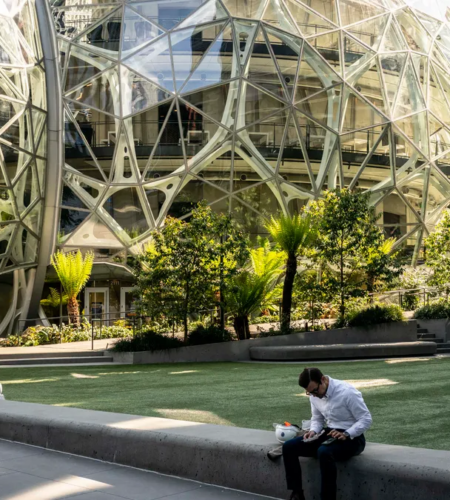In the fast-evolving world of urban development, Millennials are not just passive observers—they’re active architects of our cityscapes. With a blend of tech-savviness, sustainability-driven values, and a knack for innovative solutions, our generation is leading the charge in shaping the future of smart cities. But what exactly does that look like, and why are Millennials uniquely positioned to drive these changes?
Tech-Savvy Urban Planners
Our deep immersion in technology has fundamentally altered how we interact with and think about urban spaces. From the smartphones we can’t live without to the apps that streamline our daily routines, Millennials are pushing for cities that leverage these technologies to enhance efficiency and quality of life. Take smart infrastructure, for example: cities are increasingly integrating sensors and data analytics to optimize everything from traffic flow to energy use. We’re advocating for these advancements because we understand firsthand how technology can simplify and improve everyday life.
A prime example is the rise of smart grids and intelligent transportation systems. Millennials are championing these innovations because they not only enhance convenience but also contribute to more sustainable urban environments. Cities like Singapore and Barcelona are already implementing these systems, demonstrating how technology can transform urban living.
Championing Sustainability
The commitment to sustainability should just be a trend—it’s a way of life. Millennials are driving the push for green technologies and sustainable urban practices. From advocating for renewable energy sources to supporting green building certifications like LEED, our generation is deeply invested in creating eco-friendly urban environments.
Consider the proliferation of green roofs and urban gardens. Millennials are not just supporting these initiatives but are actively involved in their implementation and promotion. Cities like New York and Toronto have embraced these green innovations, improving air quality and urban biodiversity. Our focus on sustainability ensures that these practices become integral to urban development, aligning with our values and addressing pressing environmental concerns.

Economic Influence
As Millennials enter their peak earning years, our economic influence is becoming more significant. According to a 2023 McKinsey report, our purchasing decisions increasingly favor sustainable and tech-driven solutions. This economic power is driving demand for smart city features that align with our values, such as energy-efficient housing and tech-enabled services. The rise of “green” real estate developments in cities like Seattle and Austin reflects this trend, with Millennials prioritizing eco-friendly and technologically advanced living spaces.
Redefining Urban Mobility
Our approach to transportation is another area where Millennials are making a significant impact. We’re not just using new forms of transportation like electric scooters and ride-sharing services; we’re advocating for policies that support sustainable and efficient mobility solutions. Cities are responding to this shift by investing in bike lanes, expanding public transportation options, and promoting electric vehicles (EVs).
The rise of EVs is a testament to our influence. Many Millennials prefer electric cars not just for their environmental benefits but also for their advanced technology and lower long-term costs. This shift is pushing cities to enhance charging infrastructure and develop policies that support the adoption of clean transportation.

(Tietgen Dormitory / Lundgaard & Tranberg Architects. Image © Jens M. Lindhe)
Innovative Urban Design
Our desire for functional, inclusive, and adaptable urban spaces is driving innovative urban design. Millennials are calling for mixed-use developments that combine residential, commercial, and recreational spaces, creating vibrant and interconnected communities. This approach contrasts with traditional urban planning that often separates these functions, leading to more isolated and less dynamic environments.
Cities like Portland and Copenhagen are leading the way in this area, incorporating mixed-use designs that foster community interaction and reduce dependence on cars. By pushing for these modern planning principles, Millennials are shaping cities that are more livable, engaging, and sustainable.
Community Engagement and Inclusivity
One of the most significant impacts Millennials are making is in the realm of community engagement and inclusivity. We’re advocating for urban spaces that are accessible and equitable for all residents. This includes supporting affordable housing initiatives, accessible public spaces, and community-driven development projects.
The focus on inclusivity means that smart city technologies are being designed with diverse populations in mind, ensuring that advancements benefit everyone, not just a select few. For example, initiatives like smart city apps that provide real-time information on public services and accessibility features reflect our commitment to making urban environments more inclusive.
The Road Ahead
As Millennials continue to shape the future of smart cities, we face exciting opportunities and important challenges. Our tech-savviness, sustainability focus, and innovative spirit are driving urban transformations that align with our values. However, achieving our vision requires collaboration across generations and addressing the diverse needs of urban populations.
Millennials are at the forefront of smart city development, bringing our unique perspectives and priorities to the table. By embracing technology, championing sustainability, and advocating for inclusive urban design, we’re building the cities of tomorrow—cities that reflect our aspirations and improve the quality of life for all residents.


